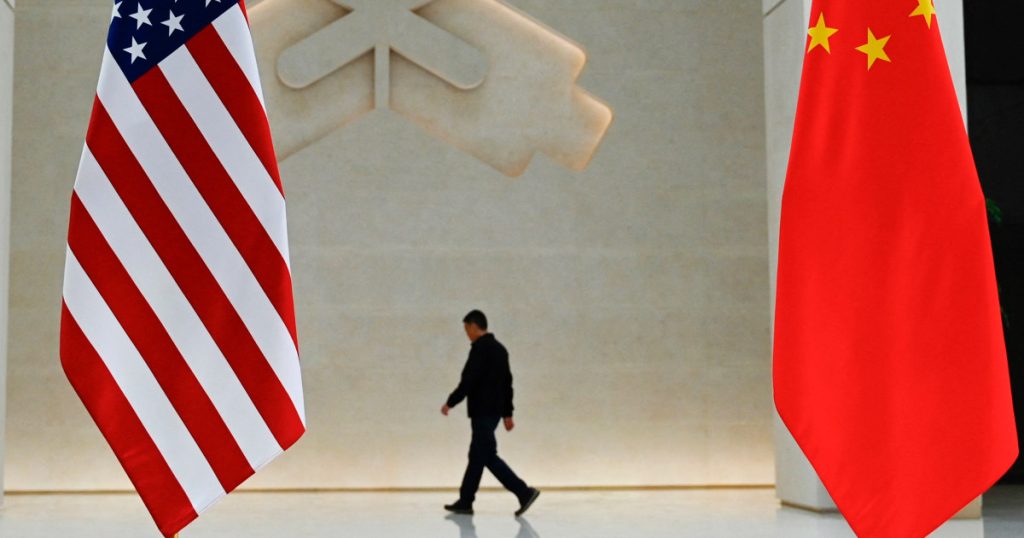A recent Pew Research Center survey reveals that more than 40% of Americans now view China as an enemy, marking a significant increase from just a quarter of the population two years ago and the highest level in five years. Additionally, half of Americans consider China a competitor, while only 6% see the country as a partner. These findings come as the Biden administration aims to stabilize U.S.-China relations to avoid potential clashes, while still addressing key issues such as Russia’s war in Ukraine, Taiwan, and human rights. Secretary of State Antony Blinken and Treasury Secretary Janet Yellen have visited China as part of the administration’s efforts to manage competition with Beijing responsibly.
Despite these efforts, President Joe Biden and former President Donald Trump, the presumptive Republican nominee in the upcoming election, continue to compete on being tough on China. The Pew report, based on a survey of 3,600 U.S. adults, shows that about half of Americans view limiting China’s power and influence as a top U.S. foreign policy priority, with only 8% disagreeing. Furthermore, approximately eight in 10 Americans hold an unfavorable view of China, with 43% expressing a very unfavorable opinion. President Xi Jinping receives similarly negative ratings, as about 80% of Americans have little to no confidence in him regarding global affairs.
This negative shift in American attitudes towards China can be attributed to various factors, including the U.S.-China trade war launched in 2018 and the emergence of COVID-19, which was initially reported in China. Beijing’s human rights record, alignment with Russia, and approach towards Taiwan and Hong Kong have also contributed to Americans’ unfavorable perceptions of China. The U.S. government has openly acknowledged its competition with China on economic and diplomatic fronts, further influencing public opinion. As a result, 42% of Americans now view China as an enemy, with the share being significantly higher among Republicans and Republican-leaning independents compared to Democrats and those leaning Democratic.
The Pew report highlights that older Americans, conservative Republicans, and individuals with a negative view of the U.S. economy are more likely to view China as an enemy. Americans tend to have a more critical perspective of China when they believe the country’s influence in the world has grown recently, or it has a significant impact on the U.S. economy. Additionally, pessimism about the U.S. economy correlates with negative perceptions of China, as those who view the economic situation in the U.S. as poor are more likely to have an unfavorable opinion of China and see it as an enemy. These findings underscore the complex relationship between American perceptions of China and domestic economic sentiments.
Moving forward, the Biden administration faces the challenge of balancing efforts to stabilize U.S.-China relations while addressing key issues and managing competition responsibly. As public opinion towards China becomes increasingly negative, it is crucial for policymakers to navigate this terrain effectively to avoid potential conflicts and maintain diplomatic stability. The Pew survey serves as a valuable tool for understanding the evolving attitudes of Americans towards China and the broader implications for U.S. foreign policy and international relations.













